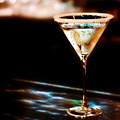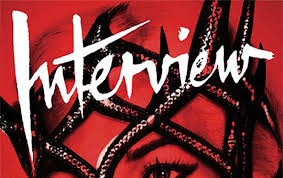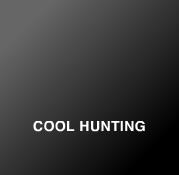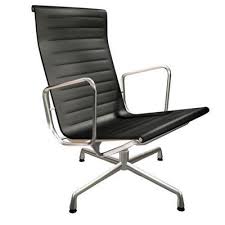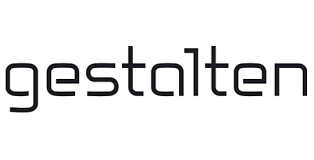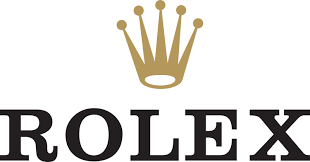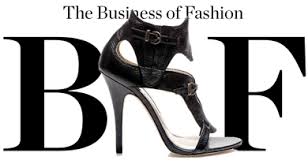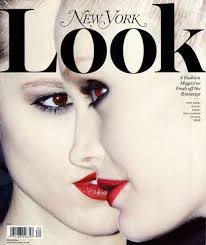
Tyler Brûlé (born 1968 in Winnipeg, Manitoba) is a Canadian-born journalist, entrepreneur and magazine publisher.
The only child of Canadian football player Paul Brûlé (of the Winnipeg Blue Bombers, Rough Riders, and Alouettes), and Virge Brûlé, an artist, he moved to the United Kingdom in 1989 and trained as a journalist with the BBC. He subsequently wrote for The Guardian, Stern, The Sunday Times and Vanity Fair. After being shot by a sniper while covering the Afghanistan war in March 1994 and losing the use of his left hand, Brûlé left journalism and launched Wallpaper*, a style and fashion magazine which was one of the most influential launches of the 1990s. Time Warner bought it in 1997, and kept Brûlé on as editorial director. Two spin-off magazines were launched: "Line" addressing sports and "Spruce" covering fashion; both were discontinued after three issues. In 2001 he became the youngest ever recipient of the British Society of Magazine Editors' Lifetime Achievement Award.
In 2001 he was hired to design the "look and feel" of Swiss International Air Lines at their relaunch, after the collapse of Swissair.
In May 2002, Brûlé left Wallpaper and concentrated on Winkmedia (now Winkreative), a design agency he founded in 1998.
In 2005, Brûlé hosted the TV media magazine The Desk on BBC Four. In 2006, he co-produced Counter Culture, a documentary series about cultural aspects of shopping, on the same channel.
He was a columnist for the Financial Times, The New York Times, and Neue Zürcher Zeitung am Sonntag. His "Fast Lane" column, which appeared in the weekend supplement of the Financial Times, covered his observations on travel, trends and high-end consumer goods gathered in the course of his travels during the week, which often seemed to involve visits to more than two continents.
In October 2006, he announced that he would create a new magazine, to be called Monocle, which launched February 15, 2007. In December 2006, he announced in "Fast Lane" that he would be taking a break from the column to work on projects. On February 14, 2007, the International Herald Tribune announced a "new weekly column on urbanism and global navigation" by Brûlé, starting on the 3rd of March.
On April 2nd 2008, it was announced that Brûlé will leave the International Herald Tribune to revive his weekly column, Fast Lane, on April 26, when FT Weekend relaunched.
According to UK fashion sources, Tyler Brûlé is rumored to be the main contributor in the forthcoming Abercrombie & Fitch Quarterly.

Monocle is a magazine and Web site founded by Tyler Brûlé, a Canadian journalist and entrepreneur. Described by CBC News reporter Harry Forestell as a "meeting between Foreign Policy and Vanity Fair", the magazine purports to provide a globalist perspective on international affairs, culture and design to wealthy, cosmopolitan readers. Andrew Tuck edits the magazine.
The magazine launched on 15 February 2007, priced at 12 euros and featuring articles on subjects including the Japanese Maritime Self Defense Force, Chinese investment in Africa, and the best Portuguese-language Sunday newspapers. In the United States, single issues sell for $10 each and the subscription price is $150 annually (10 issues). In New Zealand, single issues sell for $18 each. The publisher claims the unusual 50 percent markup for subscription covers mail delivery and enhanced web content.
Monocle is unusual in that its website contains an archive that is only available if you are a paid subscriber. (Wikipedia)

How do those chaps at the Financial Times find the energy to work? Here are Tyler Brûlé's (he of the travel trend forecasting and the diacritical marks) most recent travels, according to his April 15-16 (2006) Financial Times column:
April 4: Munich
April 5: Hamburg
April 6: Milan
April 7: Milan - St. Moritz
April 8: St. Moritz
April 9: St. Moritz
April 10 - 12: New York, London, Zürich
April 13: Return to St. Moritz
April 14: St. Moritz
April 15: Shopping excursion to Como, return to St. Moritz
A bit of a blah two weeks, really. Remarkably, Mr. Brûlé manages to stay away from Japan for a fortnight. He also lets us know that Privatair's Boeing Business Class Jet seats are not particularly comfortable for sleeping. (Jaunted.com)
Qtv Interview: Monocle's 2008 Top 25 Most Liveable Cities
"You could lose a small car in the potholes of Montreal."
"There's no investment in London's infrastructure."
"You don't get the interesting friction that you used to have in New York."
laist Interview: Tyler Brûlé Enjoys LA Money. The City? Not So Much.
Name your favorite Los Angeles...
-Restaurant
TB: Pass.
-Hotel
TB: The Bel Air.
-Bar
TB: Pass.
-Activity
TB: Driving around with a few favourite tracks.
Quality of Life Trailer


I Want Media Interview (2004)
IWM: What are the differences between the media in the U.S. and the U.K.?
Brûlé: While the newspapers in the U.K. have very strong political points of view, we don't have much of that in our television news. Your Fox News has been a fascinating story to watch. We don't quite have anything like that in the U.K. Even though, of course, [Fox owner] Rupert Murdoch has a very strong grip on Sky News, you couldn't say that Sky News wears its politics on its sleeve quite like Fox News does.
Another story that would be interesting to look at is the tabloidization of newspapers. The Independent here in the U.K. was having a terrible time. Then it went from a broadsheet format to a tabloid format, with broadsheet-quality content, and it has reversed its sales story.
It would be very interesting if a quality title like the Washington Post or the L.A. Times would be brave enough move into a tabloid format. Those are the types of things we'd like to explore.
IWM: Have you ever thought about creating another magazine?
Brûlé: I think about magazine concepts all the time. But I'm not quite convinced that the next thing I'll do in publishing will be a magazine. I'm actually quite interested in newspapers at the moment. I like the idea of taking a very old format and doing something interesting with it. It's something I'm playing with.
There's so much labeling in the marketplace with the word luxury. It's become one of the most over-leveraged terns in marketing. But, curiously, no one's taken the concept of information and packaged it in a way that says: to get information first is one of the biggest luxuries of all. I think that there's room to use both the newspaper platform and probably a radio platform to create a very powerful print and broadcast brand.
IWM: Would the Web be part of this?
Brûlé: Yes, the Web, of course, would be a part of it. But the problem with the Web is still portability. The Web still demands, for the most part, that you have to be in one place. You can talk about mobile phones and hot spots all you want, but you still have to be tethered to something at some point.
I was up in Finland with Nokia recently, and I was amazed at the technology but also equally frustrated by a lot of it. Mobile phones don't do enough yet. Yes, you can stream news onto your phone, but it's a laborious process and quite boring. The portability of the phone is very interesting, but ...
IWM: Is there anything you see on the Web that you find creatively appealing?
Brûlé: Not really. I look at a lot of things. It still comes down to the fewer bells and whistles the better for me. I think that some television companies have beautifully designed Web sites and do a good job allowing their viewers to navigate them.
There's nothing on the Web that I turn to at the moment and think: God, this is an absolute must-read for me every morning. There's lots of great content, but nothing surpasses the way I interact with the FT in the morning or the "Today" program on the BBC.
IWM: You have described London as the most creative city in the world and once said that you couldn't have launched Wallpaper* in any other city. Is London more creative than New York?
Brûlé: Yes, I think so. The price of admission in New York is so much higher, which stifles creativity. It's much easier in London for a young media entrepreneur to get their new magazine or Web site up and running and at the same time be able to throw some nice clothes on their back.
And now, the issues surrounding homeland security make it even more difficult for people who want to go the United States. A young Polish writer who wants to be a journalist can come to London because it's part of the EU. Going to New York requires getting a green card and security clearances. It's much more difficult.
London is a very international media city. Al Jazeera is setting up a major broadcasting hub out of London. When the U.S. networks cut back on foreign offices, like in Rome and Frankfurt, they consolidated operations in London. So we have a strong U.S. news-gathering community here.
You have to be pretty pathetic to be unemployed as a journalist in London because there's just so much work. Also, we've got WPP, the international advertising player. London is a much more dynamic media hub.

Lead Awards Symposium: Part 1
Lead Awards Symposium: Part 2
Lead Awards Symposium: Part 3
[Quotes]
In our media-consuming habits we want to challenge ourselves, we want to enrich ourselves in some way, but on the flipside I think we also want this treat and reward.
A good editor should be able to read the room; we don't believe in focus groups.
Everyone has to be on the same page: No eating at your desk; no walls in our office - it's completely open; no freebies or press trips; no user-generated content.
We only went to (well-to-do) family investors who are also readers.
Monocle: A single focused vision.
The deeper you go into the magazine, the more it pays you back.
You don't have that much visual real eastate (on the newsstand).
30% of the stories are pitches from freelancers all over the world.
We shun celebrity - there are no celebrities in our magazine and that's absolutely essential. We are like a spa or oasis from seeing Amy Winehouse (yet again).
We don't play to a specific region.
We're always out to support small business and craft; I can't believe the power some media brands (ie. advertisers) and PR companies have.
We always want to help our readers spot the opportunity.
I would rather let our silence speak volumes.
Sense of repetition is important to developing a very strong brand.
Not highly useful information (in Monocle) every day but terribly valuable at dinner parties.
It (Monocle) hits the right desks.
We spend a lot of time looking at the Japanese newsstand.
Frontline Interview: Global Affairs in Style (2008)
[Quotes]
We're all in a very strange time in terms of what's hitting the page.
We're a wholly independent operation.
There's so much out there in the landscape that's not being covered.
We're definitely a magazine for someone who's over 35.
The media brands think it's a good thing we're an oasis from all the celebrities out there.
If you're going to survive as a publisher today - at least in the top end of the market - you need to be collectible.
If you're under 27 you're on Facebook, if you're over 27 you're not.
We do take a positive view of the world.
(Re: Al Jazeera) Is the government of Qatar in its power any different than the power of Disney? Not really.
My favourite (long haul) airline is AA; short haul: Lufthansa. Best airport (in Europe): Munich - it shows that local government and an airline actually can work together. Haneda in Japan is the best airport in the world.
(Re: airport inefficiencies) Sometimes you have to throw people at the problem - technology's not going to save the day.
We can have all the discussions we want about the environment but people are still going to fly. The role of a city internationally: If it's going to be in the game it needs to be connected to the world.
It's about challenging format and saying you don't have to dumb down news, you don't have to give away news, you don't have to play into the whole commoditization of everything.

Blurb Magazine Interview (Mar. 08)
Blurb: Who is your competition?
TB: In a weird way, as it happened with Wallpaper*, we are a category-buster. It may sound a bit pompous but we don’t necessarily sit naturally against anyone. We have no single competitor. There are shades of The New Yorker, parts of the Economist, parts of certain Japanese magazines. Monocle shook things up with the breadth of its content. People said: “How can you cover business but also do good shopping pages at the back? Oh, you have a manga as well?” It was threatening for some. Up to then, the fashion was to know your audience and do only one thing. It was drilled into our heads by management consultants: Focus, focus, focus! Niche, niche, niche! I think we found our niche in the breadth of our coverage.
Blurb: How do you see Monocle evolving in the near future?
TB: It’s more influential, it has a broader reach. I would like to have an around-the-clock news service at some point. What that will be like, remains to be seen. Right now we print ten issues a year and update our website with weekly frequency. I would like to close the gap or extend our reach from an online perspective. Hopefully, we’ll keep doing surprising and arresting journalism.
Blurb: If someone pursues the international lifestyle that you promote, there is a lot of flying involved. Are you not concerned about the ecological consequences?
TB: The planes are going to go on flying even without me. That is my view. Yes, I could set an example and, yes, without passengers planes wouldn’t fly. But my time is actually better spent getting on a plane and introducing our readers to mayors, municipal leaders and heads of state, who are implementing interesting ecological policies within their own urban environments. Hopefully we are inspiring leadership in other places by introducing them to ideas which they may not have seen. This won’t happen if I don’t get on a plane. Also, I don’t own a car.
Blurb: There is no coverage of spiritual matters in your magazine. Is it not your thing?
TB: No. When it comes to spiritualism I had my epiphanies post-Afghanistan. I did not see angels coming down.
Blurb: You have said that, compared to other urban centres, London has fallen behind. Yet it is still your base. Please talk to us about this.
TB: I have been here [London] since 1990. I am not quite sure if it’s home but it is certainly my base. The standard is set very low here, compared to other international cities. I am not convinced we have the field of mayoral candidates that can help London maintain its current leading position.
Blurb: How long does London have to get back on track?
TB: Things move so fast today. A few years ago Munich was nowhere. Today it has made leaps. I was talking to Japanese Airlines and they were saying how important it is for them to get into Munich, to start flying to Munich. It is quite incredible what that [Munich’s progress] has done for the Bavarian economy. The leadership here [in Britain] thinks on a very local level. I would give London seven years. Otherwise the situation could easily unravel and the city would fall by the wayside. It isn’t only the fault of British politicians. Businesses are also to blame.
Blurb: Would you enter politics?
TB: In a way I have a political post with this magazine. I am not sure if I would be up for a traditional, elected post. Possibly I could work with the UN or the EU on a consultative basis.
Blurb: You dislike being in the spotlight or do you think that politics isn’t ready for you?
TB: My passion is crafting and telling stories. That is what keeps me going. Also, I am a person who likes to get the message across quickly. That is what editors do. In politics things are different. We would not be where we are today if we didn’t get the message across quickly.
Blurb: Do you pay attention to what others say of you?
TB: Yes and no. I don’t pay attention to every article or blog that is written about me. But I have a small group of people whose opinion I value.

